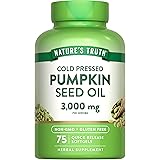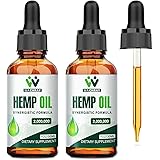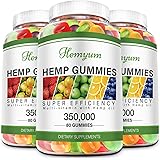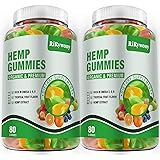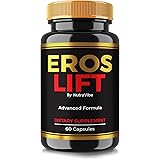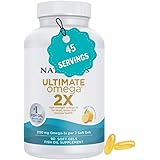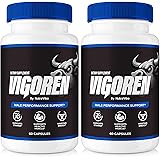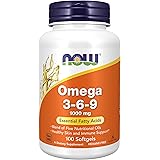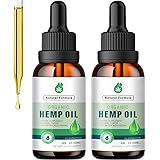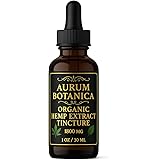An increasing global interest in plant-based wellness solutions highlights the remarkable nutritional efficacy of natural ingredients. Specifically, a 2022 market analysis indicated a substantial surge in consumer demand for dietary supplements derived from sustainable botanical sources, underscoring a pivotal shift towards holistic health paradigms. As eloquently presented in the accompanying video, hemp seed oil stands out as a preeminent example of such a powerful nutraceutical, delivering an impressive spectrum of benefits for overall physiological well-being.
This comprehensive guide aims to further elaborate on the extraordinary attributes of hemp seed oil, moving beyond its basic compositional profile to explore its profound systemic impacts. We will delve into its unique fatty acid balance, its potent anti-inflammatory properties, and its capacity to support various bodily functions, offering a deeper scientific perspective on its utility in contemporary wellness regimens.
The Nutritional Powerhouse: Deconstructing Hemp Seed Oil’s Composition
Hemp seed oil is cold-pressed from the seeds of the Cannabis sativa plant, distinct from cannabidiol (CBD) oil because it contains negligible amounts of psychoactive tetrahydrocannabinol (THC) or other cannabinoids. This oil is celebrated for its exceptionally balanced nutritional profile, which significantly contributes to its multifaceted health advantages. Its primary therapeutic value stems from its unique lipid composition and rich micronutrient content, making it a cornerstone for those pursuing enhanced health.
Essential Fatty Acid Ratios: A Cardioprotective Profile
A cornerstone of hemp seed oil’s efficacy lies in its optimal ratio of Omega-3 and Omega-6 essential fatty acids, typically around 3:1 (Omega-6 to Omega-3). This specific balance is considered highly beneficial for human physiology, aligning closely with dietary recommendations for mitigating chronic inflammatory processes. These polyunsaturated fatty acids are precursors to eicosanoids, signaling molecules that modulate critical functions such as blood pressure regulation, immune responses, and inflammatory pathways. Consequently, regular consumption can profoundly support cardiovascular health by fostering healthy cholesterol levels and maintaining arterial elasticity.
Gamma-Linolenic Acid (GLA): Hormonal and Dermal Support
Beyond the fundamental Omega-3 and Omega-6, hemp seed oil contains gamma-linolenic acid (GLA), a less common Omega-6 fatty acid. GLA is a crucial precursor to prostaglandin E1 (PGE1), a potent anti-inflammatory agent that plays a significant role in modulating immune function and cellular signaling. Research indicates GLA’s specific capacity to influence hormonal balance, offering potential relief for symptoms associated with premenstrual syndrome (PMS) and menopause by regulating prostaglandin production. Furthermore, its contribution to maintaining epidermal barrier function significantly improves skin hydration and elasticity, directly addressing issues of dryness and irritation.
Systemic Benefits: Beyond Basic Nutritional Intake
The synergy of its diverse components imbues hemp seed oil with extensive systemic benefits that extend well beyond fundamental nutritional sustenance. Its broad spectrum of action impacts several critical physiological systems, offering a holistic approach to maintaining wellness and addressing common health concerns. Understanding these deeper mechanisms illuminates why this botanical extract is garnering such widespread recognition.
Mitigating Systemic Inflammation
Chronic inflammation is a foundational cause of numerous modern health conditions, including autoimmune diseases, cardiovascular disorders, and neurodegenerative conditions. The rich concentration of Omega-3 fatty acids, particularly alpha-linolenic acid (ALA), combined with GLA, endows hemp seed oil with significant anti-inflammatory properties. These compounds actively suppress pro-inflammatory mediators and promote the synthesis of anti-inflammatory compounds within the body. Therefore, integrating hemp seed oil into the diet can assist in managing inflammatory responses, potentially reducing the severity of conditions like arthritis and inflammatory bowel disease.
Enhancing Cognitive Function
Omega-3 fatty acids, especially DHA and EPA (which ALA can be converted into, albeit with varying efficiency), are indispensable for optimal brain health and cognitive performance. Hemp seed oil’s beneficial fatty acid profile supports neuronal membrane integrity and facilitates efficient neurotransmission, crucial for memory, learning, and mood regulation. The inclusion of antioxidants also protects brain cells from oxidative stress, a known contributor to cognitive decline. Consequently, incorporating this oil may contribute to improved focus, mental clarity, and overall neurological resilience.
Supporting Gastrointestinal Health
While the video briefly mentioned high fiber, it is essential to clarify that the oil itself contains negligible fiber. However, the whole hemp seeds from which the oil is pressed are indeed rich in dietary fiber, which is paramount for digestive regularity and gut microbiome health. The fatty acids in hemp seed oil, nonetheless, can indirectly support gastrointestinal health by reducing inflammation in the gut lining and promoting a healthy intestinal environment. A well-functioning digestive system is fundamental to nutrient absorption and overall immune competence, highlighting the oil’s supportive role in gut well-being.
Nurturing Dermal Integrity
The external application of hemp seed oil directly addresses various dermatological concerns, offering profound moisturizing and restorative effects. Its ability to penetrate deeply without clogging pores makes it an excellent emollient for dry, irritated, or acne-prone skin. The balance of essential fatty acids, particularly linoleic acid, mimics the skin’s natural lipids, reinforcing the epidermal barrier and reducing transepidermal water loss. Conditions such as eczema, psoriasis, and dermatitis have shown symptomatic improvement with consistent application due to its anti-inflammatory and regenerative capabilities.
A Complete Plant-Based Protein Source
While the oil itself is primarily a source of fats, it is important to acknowledge that the unpressed hemp seeds are a complete protein, containing all nine essential amino acids. This makes the broader hemp plant an invaluable resource for individuals adhering to plant-based diets. Even within the oil, the residual protein fractions, though minimal, contribute to the overall nutritional density and underscore hemp’s comprehensive dietary value, supporting muscle repair and growth, and enzymatic functions.
Practical Integration and Applications
Incorporating hemp seed oil into daily routines is straightforward, offering versatility for both culinary and topical applications. Due to its delicate nature and low smoke point, it is optimally used in cold preparations to preserve its beneficial fatty acids and nutrient integrity. Proper storage and thoughtful integration are key to maximizing its therapeutic potential and ensuring its stability.
Culinary Versatility
Hemp seed oil possesses a pleasant, nutty flavor profile, making it an excellent addition to salad dressings, smoothies, pestos, and dips. It can be drizzled over cooked vegetables, grains, or pasta dishes just before serving to impart a rich taste and nutritional boost. For adults, a typical daily dosage often ranges from one to two tablespoons, though individual needs may vary. It is important to note that heating hemp seed oil significantly above room temperature can degrade its beneficial fatty acids, diminishing its health properties and altering its flavor.
Topical Application for Skin and Hair
Beyond internal consumption, hemp seed oil excels as a natural emollient and restorative agent for skin and hair. It can be applied directly to the skin as a moisturizer, particularly beneficial for dry patches or areas affected by eczema. For hair, it serves as a nourishing treatment, enhancing shine and strength when massaged into the scalp or applied to the ends. Its non-comedogenic properties ensure it provides hydration without exacerbating breakouts, making it suitable for most skin types.
Evidently, the profound advantages offered by hemp seed oil position it as an indispensable component of a well-rounded health regimen. Its distinctive profile of Omega-3 and Omega-6 fatty acids, coupled with GLA and various antioxidants, addresses a multitude of physiological needs. From bolstering cardiovascular integrity and modulating inflammatory responses to enhancing cognitive acuity and nurturing dermal health, the versatile benefits of hemp seed oil underscore its pivotal role in advanced nutritional strategies.


